Posted on 12/30/2022
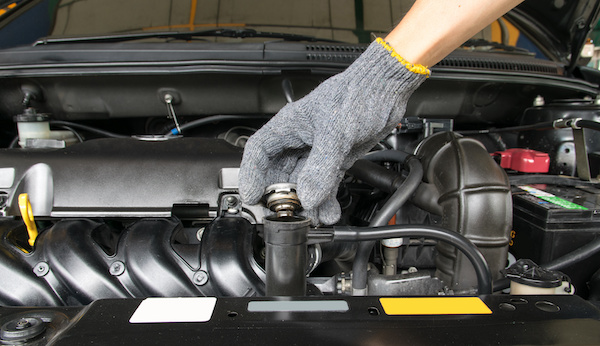
Signs that your cooling system is struggling are simple to spot, but fixing the problem can take time and effort. Many car owners overlook these early signs, which means that sooner or later, there will be a lot of misery sooner or later. The sooner you deal with these problems, the easier it is to fix the system and get back to cruising again. Here are some signs of impending trouble that you should look for so that you can do what it takes to aver the situation before it becomes a bigger problem. The A/C Compressor Is Hard To Start This sign is pretty easy to identify, and you can notice that immediately upon turning on the ignition. This indicates a severe problem with your compressor or a loose ground wire in the system. There are times when the A/C dries out and will not start at all, but usually, if it turns over without the engine cranking, it means there's a problem. The Radiator Leaks A radiator that leaks can cause many problems with the A/C and heater. If you see a ... read more
Posted on 11/18/2022

Owning and driving a car is one of the greatest gifts, and most vehicle owners tend to take their cars for granted. Think about it – you can go anywhere, anytime, and at your convenience. You can roll the windows down to enjoy the breeze, and get a glimpse of the scenery. In times of need, it helps you get from point a to point b in a hurry. Let’s face it – public transportation can be a hassle. When it pours or snows, it can make walking, riding a bike, and catching a bus seem nearly impossible. When you own a car, it offers the freedom to gather with friends and family and make experiences with your loved ones better. Not only are our cars a reliable mode of transportation, but they bring people together. They help you get things done and reach your goals. Your car is also a way to express yourself with your chosen style, color, wheels, etc. It is your home away from home that you get to decorate and outfit with stylish gear, clever tech, and comforting scen ... read more
Posted on 10/28/2022
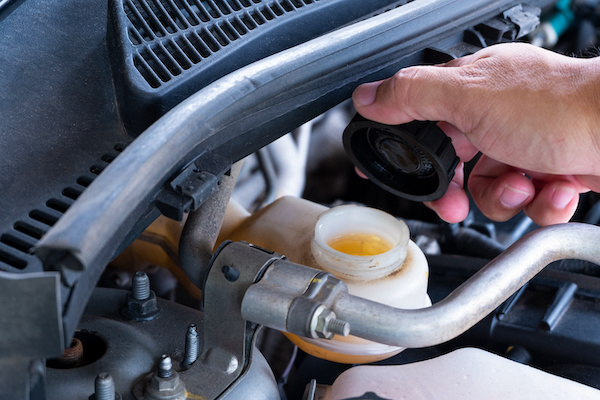
Your vehicle's braking system plays a vital role in ensuring your safety on the road. It comprises rotors, hoses, braking pads, pistons, clippers, and braking fluid, which work in tandem to bring your car to a stop when needed. The braking fluid is a vital component in the braking system and is responsible for initiating the braking action. Read on to understand what it is and its importance in your vehicle. What is Brake Fluid? Brake fluid is a hydraulic fluid used in hydraulic clutch and brake applications. It essentially transforms force into pressure, augmenting the vehicle's braking force to bring it to a halt. It's inside the master cylinder, which is connected to your vehicle's brake pedal. When you put your foot on the pedal, the pistons in the brake caliper of each wheel get compressed. The brake fluid in turn transforms the force into pressure, allowing the brake pads to slow down and eventually bring your car to a stop. Impact of Brake Fluid on Safet ... read more
Posted on 9/30/2022

Most of us wouldn't buy an expensive suit or dress without trying it on for fit, nor would we even consider investing in a property without conducting a thorough inspection. However, when it comes to the purchase of a used car, we are sometimes reluctant to engage in the same degree of due diligence. It may be that we've found the exact make and model we prefer, with a spotless interior and great looking paintwork. As with all areas of life, appearances can be misleading, and the only person who can ascertain whether your desired car will live up to your expectations, be structurally and mechanically safe, and likely economical to maintain, is an experienced auto-mechanic. Here's why a pre-purchase inspection at a trusted car workshop is absolutely worth every cent. A mechanic sees what you can't Your mechanic will conduct a thorough examination of the exterior and interior of the car, inspecting its engine bay, the state of the wheels and tyres, and the functioning o ... read more
Posted on 8/30/2022
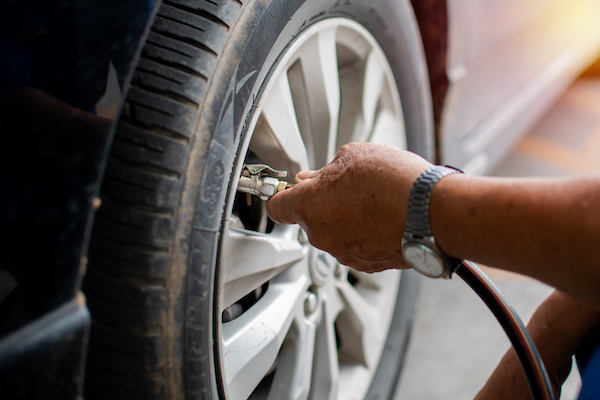
Driving with improper tire pressure can cause an array of problems. First of all, you may experience a drop in your fuel efficiency. And your tires won’t get proper traction. When you neglect your tire pressure altogether, you can cause them to wear unevenly or blow out completely. If you don’t want to blow through buying new tires quickly, we recommend checking your pressure as often as once a month. Before you start unscrewing the caps on your wheels, think twice about how much pressure your tires actually need. In the US, pressure is measured in PSI or pounds per square inch. You can typically find the safe range for your vehicle’s tires by looking at the driver’s door jamb. There should be a sticker with the PSI range listed. If you can’t find it, the owner’s manual will always have the information available. Steps on How to Check Tire Pressure You should try to always measure your pressure when the tires are cold for a mor ... read more
Posted on 7/26/2022
.jpeg)
Night driving is daunting and dreadful for most drivers. But with a few precautionary measures, it's safe. Still, there is an increased risk of accidents at night than daytime. According to the National Highway Traffic Safety Administration (NHTSA), fatal road crashes triple during the night. This is mainly from poor depth perception and visibility. Tips for Driving Safely at Night Keep your view clear Ensure your windshield is clear and clean from dust, bugs, grease, and other obstructions. A dirty view increases the effects of glare. Also, check your side mirrors. If they have any cracks, fix them immediately. Know how to use your beams When driving on rural or open roads, use high beams. But, if another vehicle is approaching, dim them to avoid blinding the other driver. Also, don't use high beams if you are behind another car. Experts recommended using adaptive lighting systems that automatically adjust beams in the presence of other vehicles. Adjust your dashboard ligh ... read more
Posted on 6/30/2022
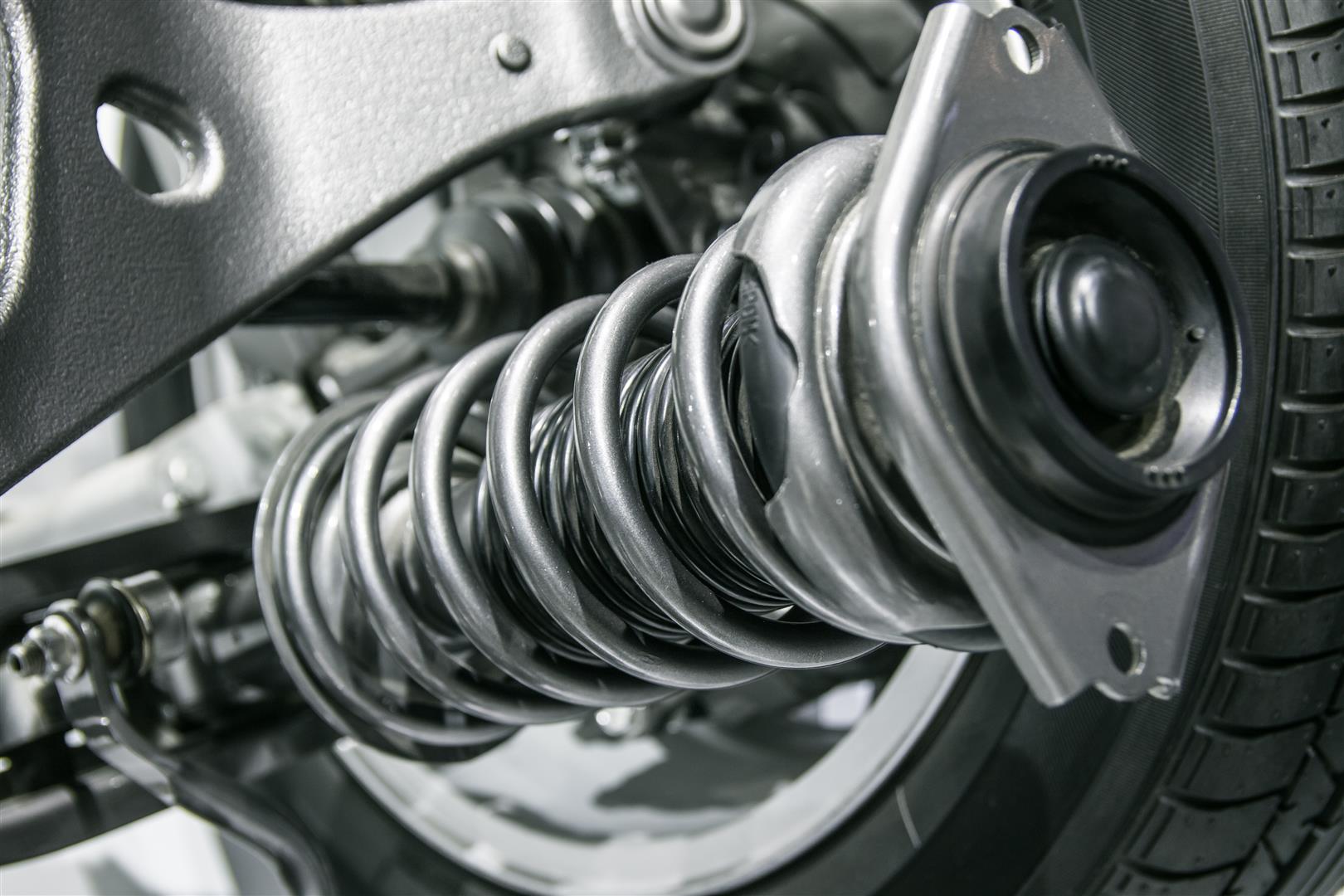
The shock absorber is a vital component in a vehicle's suspension system that plays a necessary role in preventing your vehicle from bouncing. It does so by absorbing the road impact. Over time, the shocks will need replacing. Read on to learn more about the warning signs of worn shock absorbers. Signs that your shock absorbers need replacement The following are some warning indicators that your shock absorbers need to be replaced: 1. Rough ride The most obvious indicator of a shock absorber issue is a bumpier ride. If you feel like you're about to lose control of your car over a bump or pothole, check your shocks. 2. Bad steering Steering difficulty is another shock absorber issue symptom. The steering wheel may be stiff whenever you turn or change lanes, and the vehicle may tend to lean in the process. 3. Instability when Braking When shock absorbers don't work right, they can cause more than just suspension problems. When you brake, your vehicle may feel unstable ... read more
Posted on 5/25/2022
.jpeg)
Spark plugs are one of the essential parts of a car's engine. They're what ignites gasoline when you crank the car's engine, and they're also responsible for running the car. But if it's not working right, it can cause problems. That's why you'll notice bad or failing spark plug indicators. Different indicators of a bad or failing spark plug are listed below. The Car Can't Start If your vehicle is tough to ignite or has difficulty getting it going, you may have a failing or faulty spark plug. The spark plug acts a big part in getting the car's engine moving. Your vehicle needs the gasoline to ignite to start the vehicle. A bad spark plug will only make this process harder. Deteriorating Gas Economy If your car's fuel economy is deteriorating, it can be due to a faulty spark plug. A faulty spark plug will make starting the car difficult and cause the vehicle to use more gas. The Car Has Trouble Accelerating The engine can fail when you try t ... read more
Posted on 4/27/2022
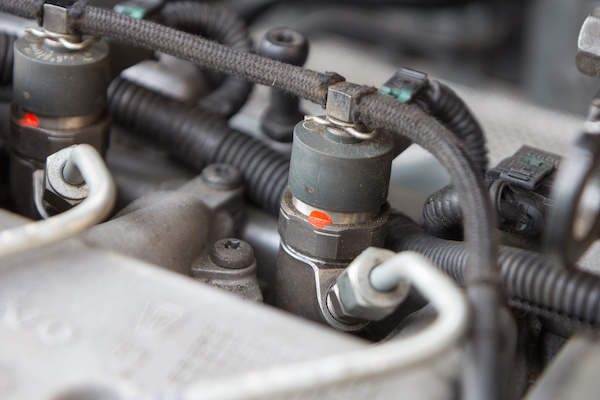
Fuel injectors are one of the most important components in keeping your car running smoothly. They help deliver the right amount of fuel to the engine, and if they aren't working properly, it can lead to all sorts of problems. If they become clogged or damaged, your car can start to experience several problems. Here are some of the signs that you may have bad fuel injectors: 1. The engine is misfiring If your engine is misfiring, it could be because the fuel isn't being delivered evenly to all cylinders. This can cause a loss of power and efficiency. 2. The car is hesitating or stalling If your car hesitates or stalls when you try to accelerate, it could signify that the fuel injectors are clogged. 3. The engine is running rough If the engine is running rough, it could be because the fuel mixture is too rich or too lean. This can cause a loss of power and efficiency. 4. The car is consuming more fuel than usual If your car seems to be consuming more fuel than usual, it ... read more
Posted on 3/28/2022
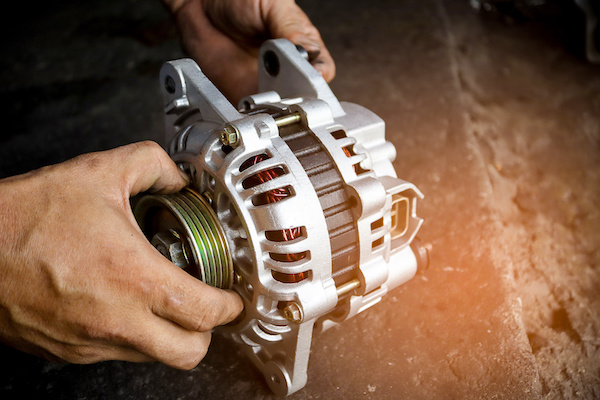
When your car doesn't start up in the morning when you're on the way to work, you're probably thinking that your battery is dead. Did you leave your headlights on overnight, or is it completely out of the blue? Regardless, you'll definitely not be starting the day off on the right foot. Time and time again, we've had people come into our shop after already replacing their car battery and still finding that their vehicle won't start up or stay running. Typically, this is because the issue wasn't with the car battery in the first place - the problem was actually the alternator. What is the alternator and what does it do? While the car battery is essentially to generate the power needed to get your vehicle started up and running, it is actually the alternator that helps recharge the battery as your car runs. If the alternator is faulty, your battery will fail to stay charged. Here are a few symptoms that can point to alternator problems: Car won't start ... read more